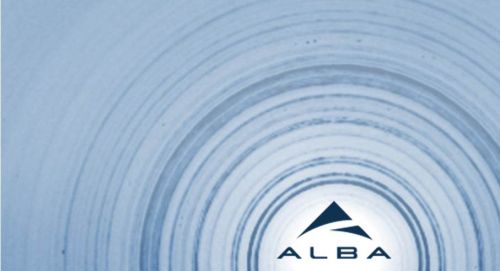
15/03/2018
Major Upgrade of an ALBA Synchrotron Beamline
Major Upgrade of an ALBA Synchrotron Beamline
ALBA synchrotron currently offers 8 beamlines. 8 beamlines mean 8 different potential ways to produce synchrotron light and 8 different ways to use it in 8 different laboratories located around the electron accelerator with the aim of determining the intimate structure of materials in a way that depends on their characteristics and the information required.
One of these beamlines is called NCD, which stands for Non Cristalline Diffraction: this beamline is used to get structural information about non crystalline materials, that is to say materials in which atoms are not perfectly ordered, such as polymers or proteins, for instance.
By the way, the NCD beamline is now NCD-SWEET and the new name has been announced this week by ALBA. But, of course, the change goes far beyond: the beamline devoted to Small Angle and Wide Angle X-ray Scattering (SAXS, WAXS) has gone through a major upgrade and now offers users further experimental possibilities and higher quality data.
Upgraded items in the SAXS WAXS experimental techniques (SWEET) involve a new monochromator system, a new photon counting detector, a new sample table and a beam conditioning optics with µ-focus and GISAXS options. This new GISAXS (Grazing, Incident SAXS) technique is now available and will be open to academic users in the next call for experiments.
One of these beamlines is called NCD, which stands for Non Cristalline Diffraction: this beamline is used to get structural information about non crystalline materials, that is to say materials in which atoms are not perfectly ordered, such as polymers or proteins, for instance.
By the way, the NCD beamline is now NCD-SWEET and the new name has been announced this week by ALBA. But, of course, the change goes far beyond: the beamline devoted to Small Angle and Wide Angle X-ray Scattering (SAXS, WAXS) has gone through a major upgrade and now offers users further experimental possibilities and higher quality data.
Upgraded items in the SAXS WAXS experimental techniques (SWEET) involve a new monochromator system, a new photon counting detector, a new sample table and a beam conditioning optics with µ-focus and GISAXS options. This new GISAXS (Grazing, Incident SAXS) technique is now available and will be open to academic users in the next call for experiments.
More news
02/06/2021
Parc de l’Alba in a WHO publication on the redevelopment of contaminated sites
27/04/2021
Natura Bissé: when architecture reflects the brand identity
08/04/2021
ASTIP, the future hub for advanced research in the Barcelona Synchrotron Park
25/03/2021
4th anniversary of the setting up of Stradivarius headquarter in the Barcelona Synchrotron Park
05/03/2021
T-Systems, a leading IT service provider with a Data Centre in the Barcelona Synchrotron Park
18/02/2021
SENER participates in the Perseverance rover which is landing on Mars today









